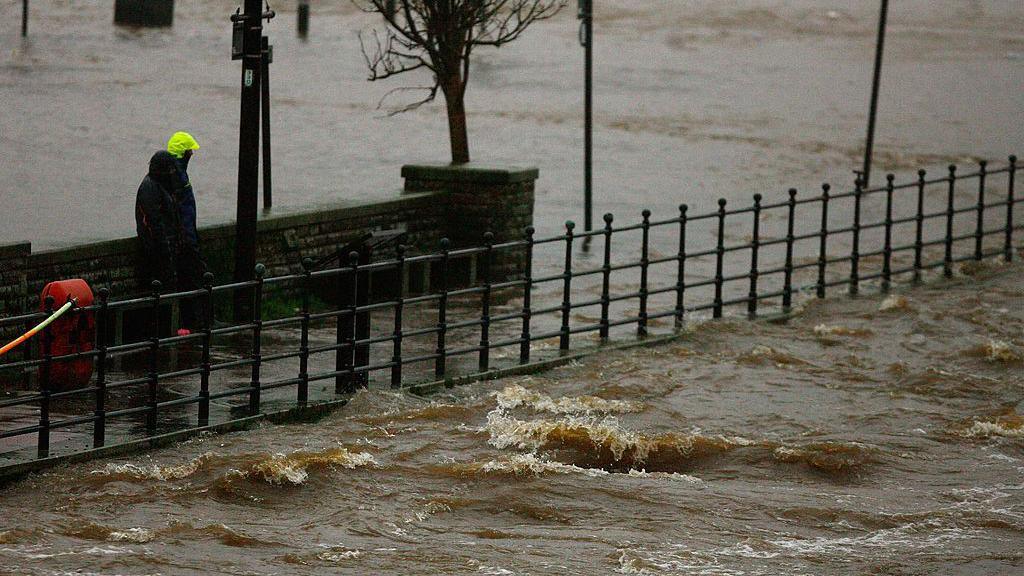Contractor lands £37.5m town flood defence deal

The Whitesands area is prone to regular flooding
- Published
A Belfast-headquartered civil engineering and construction firm has been awarded the contract for a multi-million pound flood protection scheme in Dumfries.
McLaughlin & Harvey was one of five bidders that submitted tenders for the project in the town's Whitesands area - which has seen more than 200 flooding incidents since records began.
The project has divided opinion, with repeated calls to drop the scheme and invest the money elsewhere.
The development is based on a two-stage process - the first involving detailed design work, and the second for the construction itself.
The Whitesands project is based on the development of a raised and landscaped walkway along a flood-prone section of the River Nith.
The local authority has said it will offer flood defences for properties in the area and create a vibrant riverside experience.
However, opponents fear it could damage the character of the waterfront, hit tourism and trade and reduce parking.
They have called on the council to drop the project entirely and spend money on town centre regeneration instead.
Whitesands business case
The council stressed that no commitment to the full expenditure would be made unless and until the local authority voted to advance the project.
Andy Ferguson, who chairs its economy and infrastructure committee, said: "We understand concerns around rising costs, and I want to reassure residents that the project is being developed with careful financial oversight.
"A full business case, including detailed costings and market testing, will be presented to all council members for a decision in December 2025.
"With the Scottish government slated to cover 80% of the funding, the council's own contribution would be about 20% – and even that remains subject to elected members' agreement."
- Published2 September

- Published16 February

- Published3 October 2023
